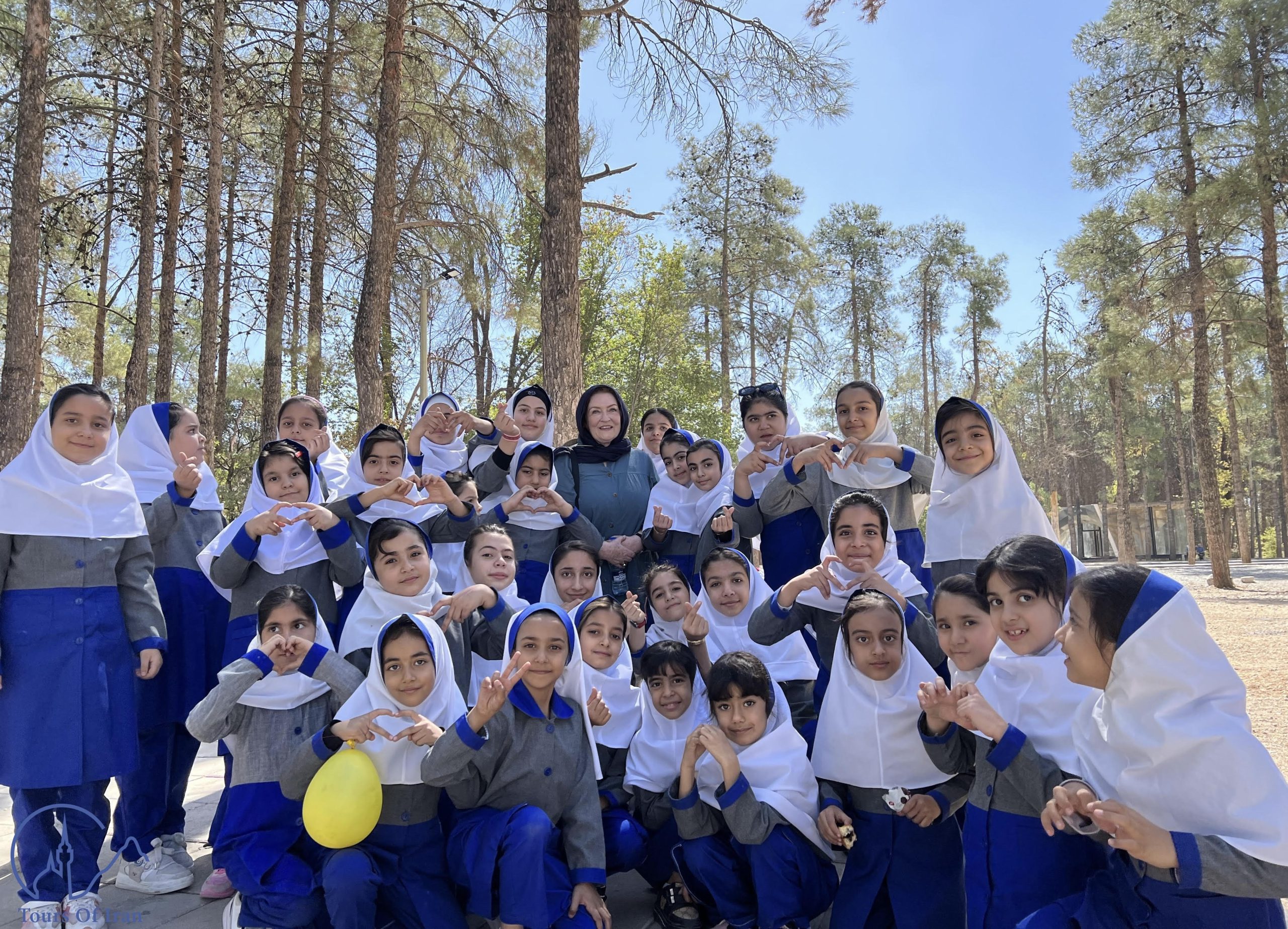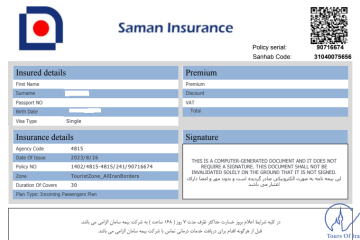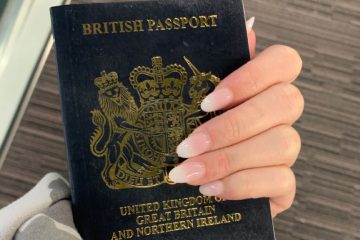
Explore the Essential 23 Restrictions You Should Know in Iran!
Discover essential Iran travel restrictions you should be aware of for a smooth and enjoyable journey!
Exploring the marvels of the former Persian Empire is a shared dream for many visitors to Iran. Yet, understanding the laws and regulations of the Islamic Republic, especially for non-Muslim travelers, can be a bit tricky. Let Tours of Iran be your friendly guide, helping you enter and travel within Iran securely and effectively while respecting the rules set by the current regime.
We have categorized Iran travel restrictions into laws and cultural considerations or customs.
Part 1: Laws
1. Visa Process in Iran
Obtaining an Iran visa is a relatively straightforward process for nationals of many countries. Most travelers can easily secure a visa upon arrival. However, there are exceptions for citizens of ten countries—Colombia, Somalia, England, Canada, the United States, Bangladesh, Jordan, Pakistan, Iraq, Afghanistan, and India—who need to apply in advance.
For citizens of Canada, England, and the United States, direct visa applications are not accepted; they must go through reputable travel firms.
Keep in mind that the option for an Iran visa on arrival is available exclusively at a few Iranian airports.
2. Money Management in Iran: Cash and Cards
Cash is King!
In Iran, foreign credit cards aren’t generally accepted, with a few exceptions like some carpet shops. You have to bring all the money you will need to cover expenses such as hotels, food, and entrance fees in cash and change money once in Iran. However, you can make transactions using the convenient “Mah Card” Simply load it with cash in your preferred currency, and it will be converted to Iranian Rials.
3. Dress code in Iran, more commonly known as Hijab law!
One of the primary challenges for female travelers in Iran is adhering to the requirement of wearing a headscarf and, in general, observing hijab.
While it may seem challenging at first, adapting to this practice is not always difficult. Over time, you’ll find yourself getting used to it, and the headscarf can prove to be quite beneficial, especially in many seasons except for summer.
For men, wearing long pants is generally sufficient and uncomplicated. Women, on the other hand, need to adhere to a more specific dress code. The basic rule is to cover the majority of your body. In public spaces, it’s essential to wear long skirts or slacks, paired with blouses featuring long sleeves, and don’t forget the headscarf. It’s advisable to avoid overly tight or figure-hugging clothing. However, leggings and slim jeans are acceptable, as long as your bottom is covered with a loose, long top or dress.
When visiting places of worship, please note that men wearing shorts are not permitted, and women must wear Islamic headscarves (a chador is required in mosques).
Two additional points about hijab:
Firstly, Many Iranians wear their headscarves somewhat loosely, exposing a significant portion of their hair. So,Don’t worry too much about getting it exactly right. Most Iranians won’t be overly critical if you make a mistake, recognizing that you’re a foreigner and may not be accustomed to the Iranian dress code.
Secondly, While it’s always good to double-check, most hostels are flexible and typically don’t require you to wear a headscarf in communal areas. Some mosques may require abayas, but not all of them, and they are often available for free loan. If you prefer, you can purchase an abaya in most bazaars across the country.
4.No Alcohol Allowed!
Iran, as a Muslim country, meticulously upholds Islamic law, and as a result, the presence of nightclubs or bars is nonexistent due to the legal prohibition on consuming or transporting alcoholic beverages by Islamic principles.
5. Don’t fly drones without permission!
When it comes to electronic equipment like drones, legality is key. Make sure to get the necessary licenses and permissions because using drones without them can lead to serious trouble, including arrest and detention for charges like espionage. To fly it safely, always get consent before using any kind of electronic device.
(As an example of flying drones illegally in Iran, you can search for Kylie Moore-Gilbert on Google)
6. Capturing Moments Responsibly: Photography Guidelines
Avoid taking pictures near military and government sites as it’s strictly prohibited. It can be tricky to identify these areas, so be extra careful when capturing photos in less obvious tourist spots. Prioritize safety in your photography to make the most of your experience.
7. Drug Policy: A Clear Warning!
importing and having drugs can lead to serious consequences with strict enforcement. Non-citizens have also faced severe penalties. To stay safe, be aware of the rules and avoid any involvement with narcotics.
8. Import and export Restrictions!
• Import Restrictions:
Prohibited Items: Importing and exporting narcotics, alcohol, and weapons is strictly prohibited.
Currency Allowance: You can bring up to $10,000 into the country without any restrictions.
Pet Regulations: Pets and animals are isolated upon arrival.
Medication Guidelines: Only prescription medication for personal use is permitted, with the dosage determined by the prescription.
• Export Limitations:
Nuts: Up to 10 kg of pistachios and other nuts.
Saffron: Up to 100 g of saffron.
Carpets: Each person can export up to 12 square meters of carpet.
Cultural Artifacts: Valuable and antique artifacts are considered part of the cultural heritage and may have export limitations.
Stay informed about these guidelines to ensure a smooth and compliant travel experience in Iran.
9. Tips for Access to Social Media in Iran!
While in Iran, accessing certain websites and services like Facebook and YouTube might require the use of VPNs. Opt for unrestricted apps like Facetime, Google Meet, and Skype for faster and easier access to social media platforms.
Is there any benefits or restrictions of visiting Iran during Ramadan?
10. Ramadan in Iran! During the 30 days of Ramadan, Muslims observe fasting from sunrise to dusk, breaking their fast with a unique evening meal called “Iftar.” It’s important to note that even non-Muslims abstain from eating, drinking, and smoking in public before sundown throughout this period.
Due to the significance of Ramadan, some establishments are closed out of respect. However, buying food and consuming it in private is entirely acceptable.
11. Hotel Tips for Your Stay in Iran!
Unmarried non-Muslim couples are welcome to stay together in hotels, while Muslim couples may need to present a marriage license.
Additionally, hotels typically hold passports until check-out for safekeeping. Your comfort and security during your stay are our top priorities.
12. Restrictions for Israeli Nationals and Passport Stamps
Please note that Israeli nationals are not allowed to enter Iran. Additionally, individuals with Israeli stamps on their passports will not be granted entry into Iran.
13. Islamic Dietary Guidelines!
No Pork or Haram Goods Allowed
14. Observing Gender Guidelines
Another key consideration in Iran travel is gender segregation. Pay close attention to your seating choices, especially in places like public transit, mosques, and places of worship. Clear Indicators: Signs Designating Areas Specifically for Men or Women. While women may enter men’s areas in certain instances, the reverse is generally not appropriate. Stay mindful of these guidelines for a respectful and smooth experience.
15. Homosexuality and Adultery is banned
According to Iranian law, participating in homosexual activity, adultery, or engaging in intercourse outside of marriage is forbidden in Iran.
Part 2: Cultural Considerations
16. Respectful Photography! Always Ask for Permission Before Taking Photos of locals
17. Public Displays of Affection!
In Iran, it’s important to be mindful of cultural norms regarding public displays of affection. Kissing and hugs between individuals of different sexes, particularly unmarried couples, are not permitted. Respecting these guidelines enhances a positive and culturally aware experience during your visit.
18. Shaking hands!
Avoid Shaking Hands with the Opposite Sex in Public.
19. Respecting Homes!
When entering someone’s home in Iran, it’s a courteous practice to remove your shoes. This gesture is important for the majority of Iranians.
20. Don’t say the Gulf!
Select the Enchanting “Persian Gulf” over “The Gulf” or “The Arabian Gulf”.
21. Use a Wastebasket for Toilet Paper
To avoid pipe clogs, please toss used toilet paper in the wastebasket provided. Thank you!
22. Avoid Thumbs Up
In Iran, giving the thumbs up is considered offensive. However, if someone gives you a thumbs-up with a smile, it indicates acknowledgment of your culture.
23. Avoid Blowing Your Nose in Front of Others!
To maintain good manners, it’s best to refrain from blowing your nose in the presence of a group of people.
https://toursofiran.com/blog/ultimate-iran-travel-guide-2023/
Discover more Iran travel restrictions and tips about Iran in the following notes:
*Official weekend in Iran
The official weekend in Iran is on Friday, but Iranians also enjoy additional government holidays throughout the year.
*Pick Marked Taxis!
In Iran, any car can serve as a taxi in theory, and it’s common for locals to hitch rides in unofficial taxis. As a visitor, for your safety, it’s recommended to choose only marked taxis.
*Politics in Iran
Exploring the political landscape and discussing current events in Iran can be interesting. While people won’t discourage political conversations and might even initiate debates, it’s essential to approach criticism with caution, as it may ignite deep-seated nationalism. We recommend keeping discussions calm and avoiding political topics during your vacation for a more enjoyable experience.
*Street Safety Awareness in Iran
Crosswalks and traffic lights may not guarantee pedestrian safety in Iran, as local drivers may not consistently follow international traffic laws. It’s crucial to recognize that a crosswalk might not be a secure area for pedestrians, and a red light might not always deter hurried drivers. To navigate streets safely, carefully observe the flow of traffic, estimate vehicle speeds, and cross with caution
*Carry a Copy of Your Passport
Since most hotels keep your passport till you check out, you should have a printed version of your passport in your possession at all times for reasons of identification. Share Your Emergency Contact Details.
Planning a trip to Iran is an exciting journey, but like any travel, it comes with some important rules. Understanding and sticking to Iran travel restrictions is key to ensuring your visit is smooth and enjoyable.






